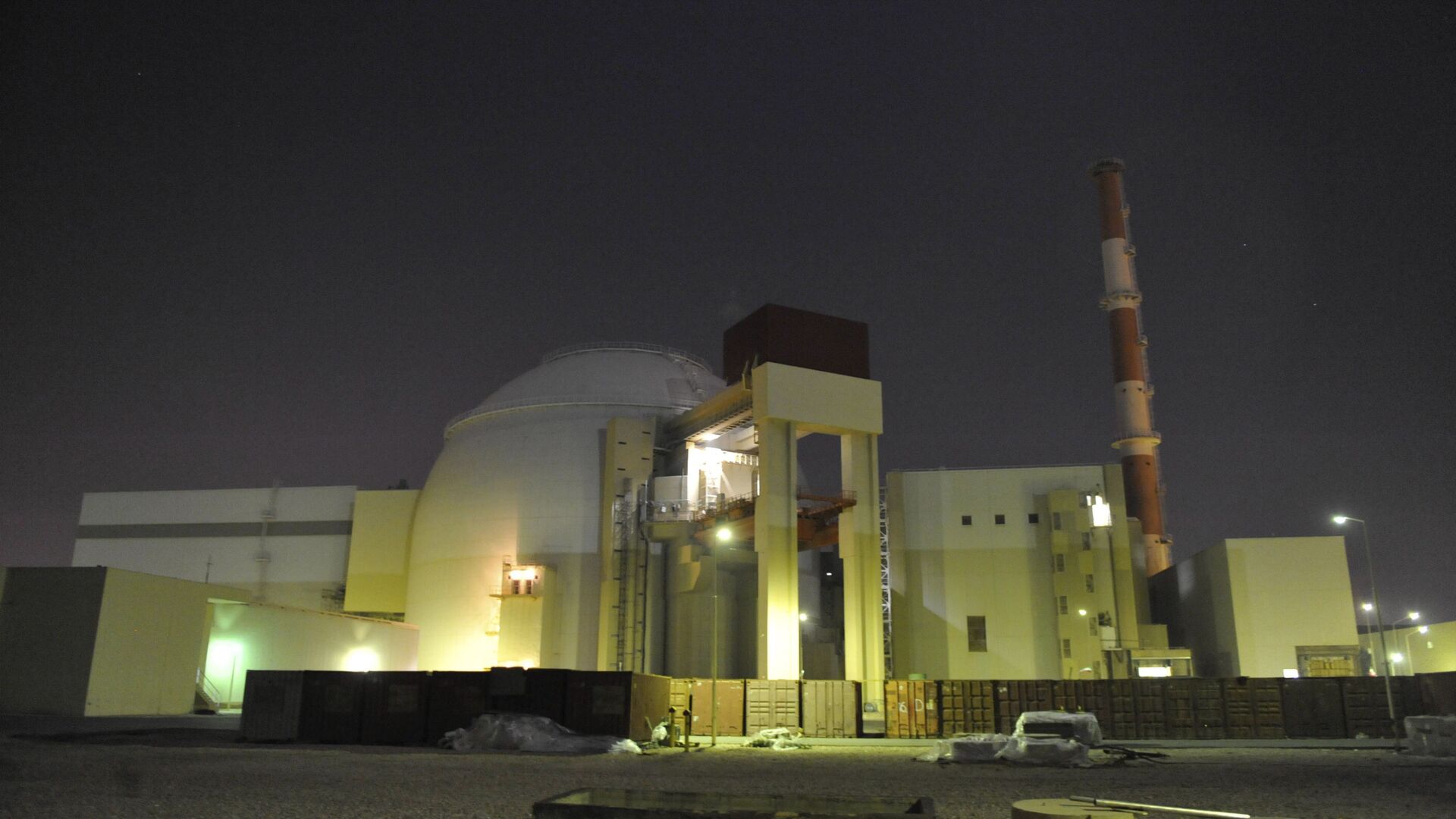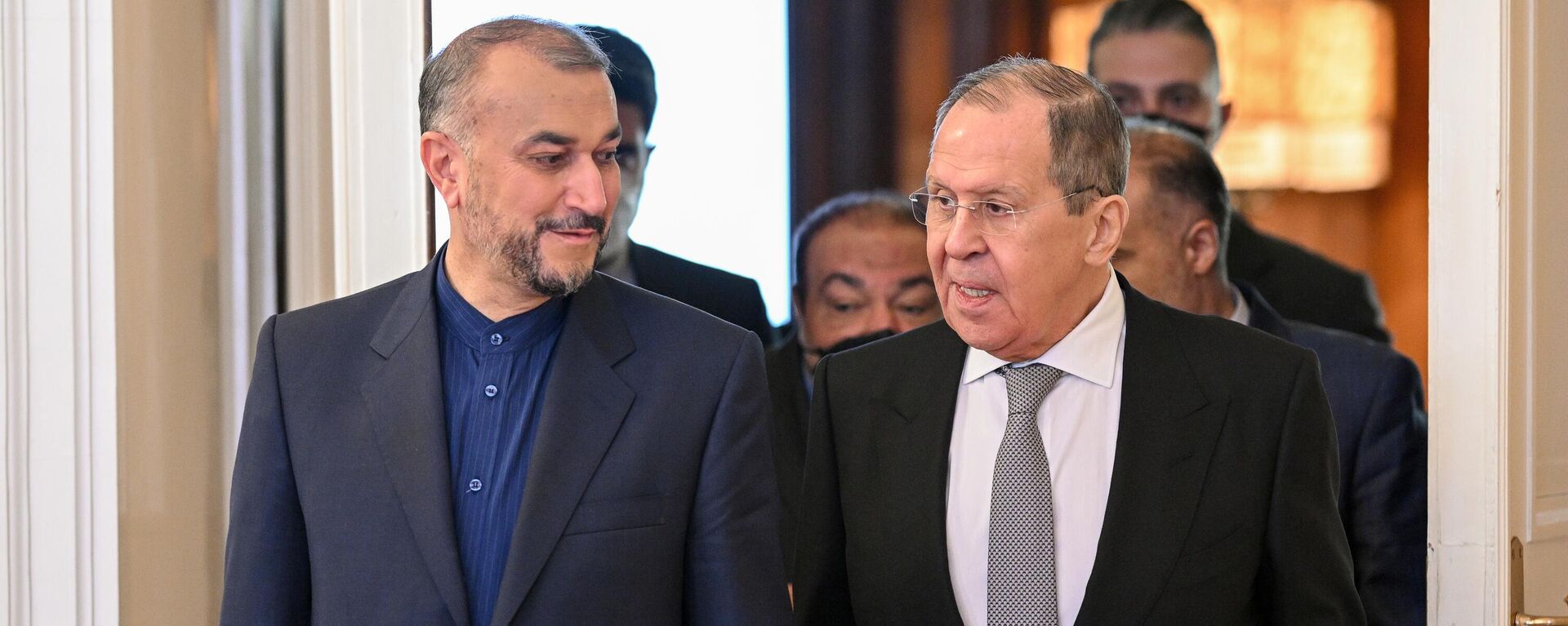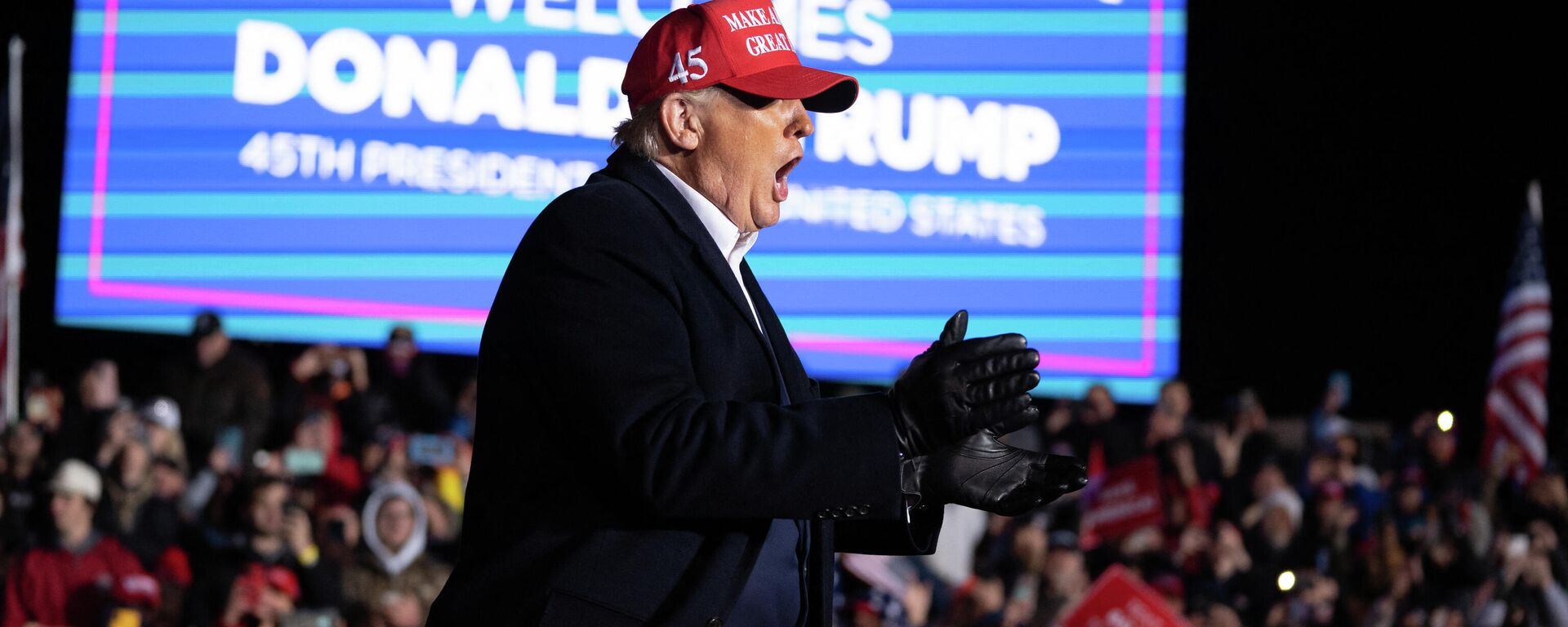https://sputnikglobe.com/20220315/us-promises-russia-sanctions-wont-affect-nuclear-cooperation-to-salvage-iran-nuclear-deal-report-1093902714.html
US Promises Russia Sanctions Won’t Affect Nuclear Cooperation to Salvage Iran Nuclear Deal: Report
US Promises Russia Sanctions Won’t Affect Nuclear Cooperation to Salvage Iran Nuclear Deal: Report
Sputnik International
The US and its allies have slapped hundreds of sanctions on Russian officials, tycoons, companies and entire economic sectors in recent weeks over the military... 15.03.2022, Sputnik International
2022-03-15T18:00+0000
2022-03-15T18:00+0000
2022-03-15T18:27+0000
joint comprehensive plan of action (jcpoa)
russia
america
https://cdn1.img.sputnikglobe.com/img/106453/76/1064537643_0:158:3077:1889_1920x0_80_0_0_31a830443c92431e2c1fc81ccb7c4dc4.jpg
Washington will seek to limit Moscow’s ability to participate in projects with Iran’s nuclear energy sector once the Joint Comprehensive Plan of Action nuclear deal is reactivated using sanctions, a senior US State Department official has told Reuters.“Perhaps it is now clear to Moscow that, as we have said publicly, the new Russia-related sanctions are unrelated to the JCPOA and should not have any impact on its implementation,” the official said.Russian Foreign Minister Sergei Lavrov indicated earlier on Tuesday that Moscow had received written assurances from the US side that its new sanctions against Russia would not affect cooperation with Iran. These guarantees include Russian-Iranian cooperation related to the Bushehr nuclear power plant, Lavrov said.Lavrov met with Iranian Foreign Minister Hossein Amir-Abdollahian on Tuesday in Moscow to discuss the JCPOA, the Ukraine crisis, and Russian-Iranian affairs. In a press conference ahead of the meeting, the Russian diplomat expressed confidence that negotiations to revive the JCPOA had entered the homestretch.Amir-Abdollahian, for his part, expressed “hope that the American side will give up its excessive demands in the moments close to an agreement so that we can announce a good and lasting agreement, which is supported by all parties to the negotiations, in the near future.”The Trump administration unilaterally pulled out of the JCPOA in 2018 and restored crushing energy and banking sanctions against Iran. Tehran provided the agreement’s remaining signatories with a one-year window to create a mechanism to evade the sanctions’ impact. When the clock ran out, Iran began to enrich and stockpile uranium to levels beyond limits set by the JCPOA.After coming into office, President Biden signalled US readiness to restart talks on rejoining the JCPOA. Negotiations were organized in Vienna. Iran and the US came close to reaching an agreement by the end of last year but hit a deadlock after each side demanded that the other be the first to make a goodwill gesture to show their commitment to the agreement. Iran has also emphasized that it will not allow its conventional missile deterrent or its foreign and security policy in the Middle East to be limited via the nuclear agreement.The homestretch of negotiations on the JCPOA come on the heels of the US move to institute a near-total ban on Russian energy supplies last week. Part of the US shortfall in supplies is broadly expected to be replaced via imports from one or more energy giants, such as Saudi Arabia, Venezuela or Iran. However, US media reported last week that Saudi and Emirati leaders refused to pick up to talk to Biden repeatedly in recent weeks. At the same time, US lawmakers have proposed legislation to ban imports of black gold coming from Iran and Venezuela – two countries that have already been ruthlessly sanctioned over the years.On Saturday, former President Donald Trump slammed Biden for “locking down” US oil and gas production and accused him of “crawling around the globe on his knees begging and pleading for mercy from Saudi Arabia, Iran, and Venezuela.”
https://sputnikglobe.com/20220315/revival-of-iran-nuclear-deal-enters-homestretch-russias-lavrov-says-1093889497.html
https://sputnikglobe.com/20220313/trump-bashes-biden-for-crawling-around-globe-on-his-knees-to-find-alternative-oil-supply-sources-1093825019.html
Sputnik International
feedback@sputniknews.com
+74956456601
MIA „Rossiya Segodnya“
2022
News
en_EN
Sputnik International
feedback@sputniknews.com
+74956456601
MIA „Rossiya Segodnya“
Sputnik International
feedback@sputniknews.com
+74956456601
MIA „Rossiya Segodnya“
joint comprehensive plan of action (jcpoa), america
joint comprehensive plan of action (jcpoa), america
US Promises Russia Sanctions Won’t Affect Nuclear Cooperation to Salvage Iran Nuclear Deal: Report
18:00 GMT 15.03.2022 (Updated: 18:27 GMT 15.03.2022) The US and its allies have slapped hundreds of sanctions on Russian officials, tycoons, companies and entire economic sectors in recent weeks over the military operation launched by Moscow in late February to demilitarise Ukraine. The crisis reportedly played a role in setting back negotiations in the effort to revive the Iran nuclear deal.
Washington will seek to limit Moscow’s ability to participate in projects with Iran’s nuclear energy sector once the Joint Comprehensive Plan of Action nuclear deal is reactivated using sanctions, a senior US State Department official has told Reuters.
“We continue to engage with Russia on a return to full implementation of the JCPOA,” the unnamed official said. “We would of course not sanction Russian participation in nuclear projects that are part of resuming full implementation of the JCPOA."
“Perhaps it is now clear to Moscow that, as we have said publicly, the new Russia-related sanctions are unrelated to the JCPOA and should not have any impact on its implementation,” the official said.
Russian Foreign Minister Sergei Lavrov indicated earlier on Tuesday that Moscow had received written assurances from the US side that its new sanctions against Russia would not affect cooperation with Iran. These guarantees include Russian-Iranian cooperation related to the Bushehr nuclear power plant, Lavrov said.
Lavrov met with Iranian Foreign Minister Hossein Amir-Abdollahian on Tuesday in Moscow to discuss the JCPOA, the Ukraine crisis, and Russian-Iranian affairs. In a press conference ahead of the meeting, the Russian diplomat expressed confidence that negotiations to revive the JCPOA had entered the homestretch.
Amir-Abdollahian, for his part,
expressed “hope that the American side will give up its excessive demands in the moments close to an agreement so that we can announce a good and lasting agreement, which is supported by all parties to the negotiations, in the near future.”
“What can play a determining role in Vienna is a realistic view of the American side in these last days and weeks of reaching an agreement,” Amir-Abdollahian said. “I would like to declare here that Russia will pose no obstacle to reaching an agreement and there will be no link between the developments in Ukraine and the Vienna negotiations,” he added.
The Trump administration unilaterally pulled out of the JCPOA in 2018 and restored crushing energy and banking sanctions against Iran. Tehran provided the agreement’s remaining signatories with a one-year window to create a mechanism to evade the sanctions’ impact. When the clock ran out, Iran began to enrich and stockpile uranium to levels beyond limits set by the JCPOA.
After coming into office, President Biden signalled US readiness to restart talks on rejoining the JCPOA. Negotiations were organized in Vienna. Iran and the US came close to reaching an agreement by the end of last year but hit a deadlock after each side demanded that the other be the first to make a goodwill gesture to show their commitment to the agreement. Iran has also emphasized that it will not allow its conventional missile deterrent or its foreign and security policy in the Middle East to be limited via the nuclear agreement.
The homestretch of negotiations on the JCPOA come on the heels of the US move to institute a near-total ban on Russian energy supplies last week. Part of the US shortfall in supplies is
broadly expected to be replaced via imports from one or more energy giants, such as Saudi Arabia, Venezuela or Iran. However, US media reported last week that Saudi and Emirati leaders refused to pick up to talk to Biden repeatedly in recent weeks. At the same time, US lawmakers have proposed legislation to ban imports of black gold coming from Iran and Venezuela – two countries that have already been ruthlessly sanctioned over the years.
On Saturday, former President Donald Trump slammed Biden for “locking down” US oil and gas production and accused him of “crawling around the globe on his knees begging and pleading for mercy from Saudi Arabia, Iran, and Venezuela.”




